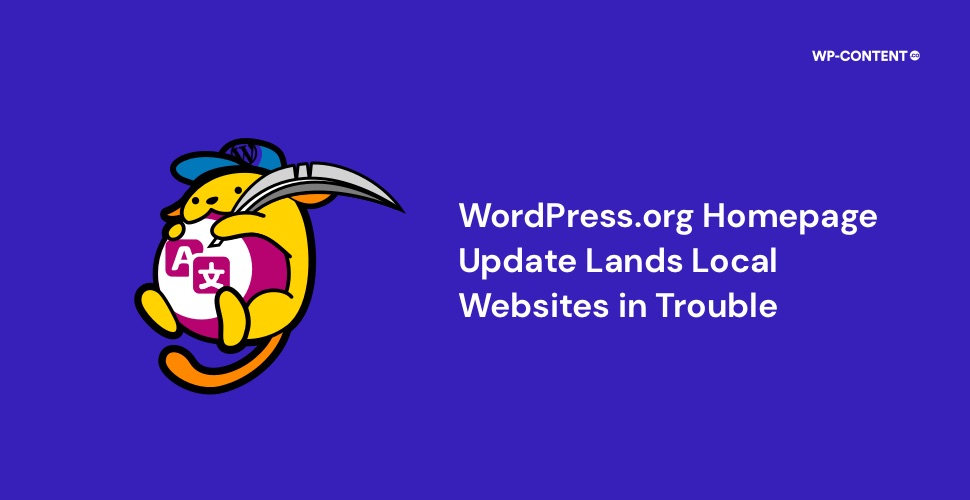The WordPress homepage got a makeover last week. Automattic-sponsored contributor Nick Diego clarified: “This is not a complete reenvisioning of the homepage but rather a quick initial iteration that aims to accomplish a few things.”
The modules updated last week are Hero, Editor and Features, Community and Learn, News and Footer. Diego explained that besides making the homepage more dynamic, the makeover aimed to target new and returning users, showcase modern WordPress, elevate the community content section, and compact the design.
Local Websites in Trouble
The makeover caused issues for local websites, with broken homepages unexpectedly displaying English strings. This caught the Polyglots off guard, as they were not informed about the update in advance.
WordPress Core Committer JB Audras expressed frustration. He said, “This is a very bad timing since we (French locale) just sent some press releases to let people know that we have a brand new homepage fully available in French, and it just changed and everything is in English. It is bad for French WordPress users, bad for the overall accessibility of the WordPress project, and very bad for our contribution experience.”
“As for now our French Rosetta website is half traducted and this is a serious accessibility issue,” he lamented. “Concerning wordpress.org homepage, we just lost everything we did to translate each string, even when there is just a single word/html tag that changed. This is not sustainable.”
Tor-Bjorn Fjellner from Spain too was not happy. “We may need a way to NOT deploy this kind of big changes overnight for the Rosetta network. In reality, you’ve suddenly launched a ‘2024 wp-org’ on us without any chance to translate upfront. The migration to ‘2022 wp-org’ is still happening, slowly.”
The situation was exacerbated by the weekend and the 24-hour cache on WordPress.org, which delayed the synchronization of translations with the network until the next meta deployment, typically not scheduled for weekends.
Interestingly, there’s no official process for Homepage translations. Automattic-sponsored Kelly Choyce-Dwan elaborated: “As far as I know, we don’t have an official process. The new content is updated in the theme, this syncs to GlotPress, and then polyglots can translate it (and there’s an automated notice in the #polyglots channel, but there’s no context there).”
Future Updates
To prevent such mishaps in the future, JB Audras emphasized the importance of notifying Polyglots in advance of any changes. “Just warn us polyglots when you do change anything prior to releasing it to the world.” he said.
Open Source Developer Advocate at GoDaddy Courtney Robertson suggested “#polyglots & #marketing teams should know before and help #website-redesign & #meta know what their ends entail to keep things low-friction, cooperative, and combined representing the unified project. Then perhaps a link in #team-reps& #announcements”
Interested readers can follow the conversation in the Slack channel for more details.




In relation to the topic, I will never cease to wonder what drove the leaders of Gutenberg project to make the niche functionality of ‘Collaboration’ the third milestone, while multilinguality, the vital of half the Internet, only the fourth.